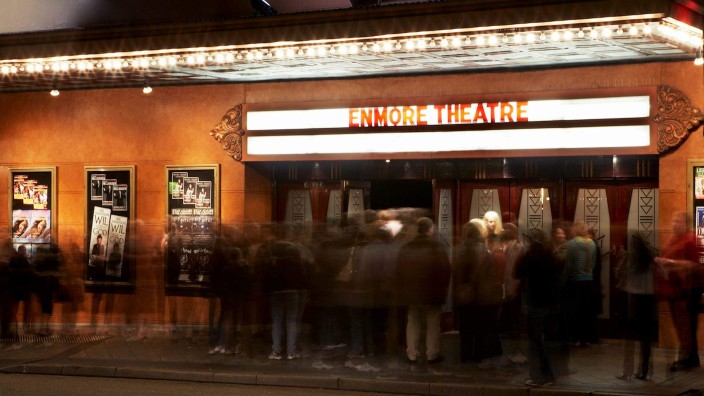In retrospect, I wish I had paid more attention to Greek cinema while growing up in Australia. With my parents and godparents, we kids – my godsisters, my godbrother and myself – would often go to various local cinemas in Melbourne in the early 1970s to see Greek films. It was a great outing into the fantasy world of film, an experience we made sure we enhanced with our own touches, as then mischievous 8-10 year olds.
We would try to sit quietly and watch the Greek, predominantly black-and-white movie on the big screen. Yet we found it more pleasurable to giggle and poke one another before heading off quietly, into the aisles and conspiratorially sneak out of the doors into the foyer.
We’d check out the toilets, then head for the canteen, gazing excitedly at the snacks we’d soon be having during intermission, like ice cream and little chocolate balls with whole almonds in them. Our cheeky escapades from our cinema seats would occur once we assured each other via sneaky looks, that our parents were so engrossed in the film that they wouldn’t notice us.
Fifty years have passed since then and it is now that I’m catching up on those days of my literally childish disregard of Greek cinema. I seek out and regularly watch old Greek films; having discovered gems like, ‘I Kalpiki Lira’ (‘The Counterfeit Coin’), a 1955 film with the beautiful and talented Elli Lambeti, as well as ‘To Teleftaio Psema’ (‘A Matter of Dignity’), another of the films she so wonderfully stars in. And there’s also another of the more ‘serious’ Greek films, ‘O Drakos’ (‘The Ogre’) 1956, starring Dinos Illiopoulos. I’ve even discovered some other favourites to rival any old Hollywood or European movie of substance from that era; socially aware, gut wrenching movies relating to the struggle of life in Athens in the 1950s, such as ‘Magiki Polis’ (‘The Magic City’) 1954 with Giorgos Foundas.
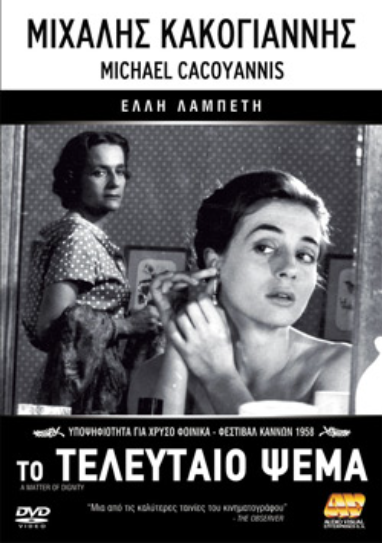
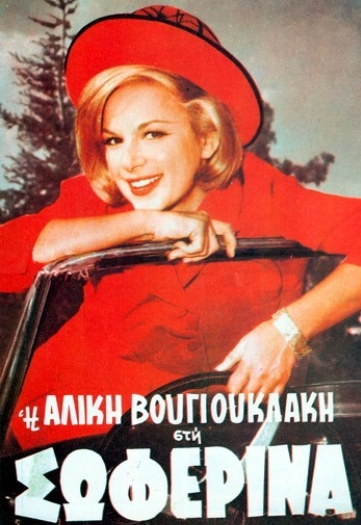
Living in Greece now, I also get to see quite a few old Greek films screening on TV. To me, these old Greek movies stand out as treasures amongst the glaring colour Greek TV series and other modern day, predominantly American films.
I’ve rediscovered many of the most popular Greek films too, ranging from comedy classics to melodramas that were shown at our Australian cinemas back then in the 60s and 70s. Their superstars included Tzeni Karezi, Aliki Vouyiouklaki and Dimitri Papamichail, Lambros Konstantaras and Rena Vlahopoulou for example, with titles that bring a smile to many a Greek cinemagoer’s face, such as ‘I Thia ap’ to Sikago’ (‘The Aunt from Chicago’).
I decided to speak with a few fellow 2nd generation Greek Australians living in Greece about their memories of watching old Greek films in cinemas in Australia back then. George, in his late 50’s, became very animated and excited, immediately spouting out film titles: ‘Papaflessas,’ ‘Anamesa Se Dio Gynaikes’ (‘Amongst two women’) with Papamichail, and ‘Katigorimeni Apologisou’ (‘Accused, Plea’).

George then went on to tell me, “I remember that the atmosphere at the Greek cinemas in Australia was totally Greek. If someone got killed in the film, the audience would do that Greek sound, tsk, tsk, tsk, you know?”
George suddenly adds: “I came to Greece due to being influenced by these films!”
I guess it familiarised us, even on a fictional level, with our Greek parents’ world – that became our world too, with different nuances now.
Tina, also a 2nd generation Greek Australian living in Greece, aged 60, says that being exposed to old Greek films didn’t influence her decision to come to Greece (and eventually settle here ten years ago).
“Though it was a great bonding experience back then in the 70s with cousins and aunts and koumbaroi. I remember being mesmerised by Tzeni Karezi and by all the romantic stuff. But it was particularly heart-warming to see my parents and relatives, hardworking Greeks, let loose a bit on weekends and laugh and sigh at the Greek films, plus have an excuse to dress up for an outing every week,” Tina says.
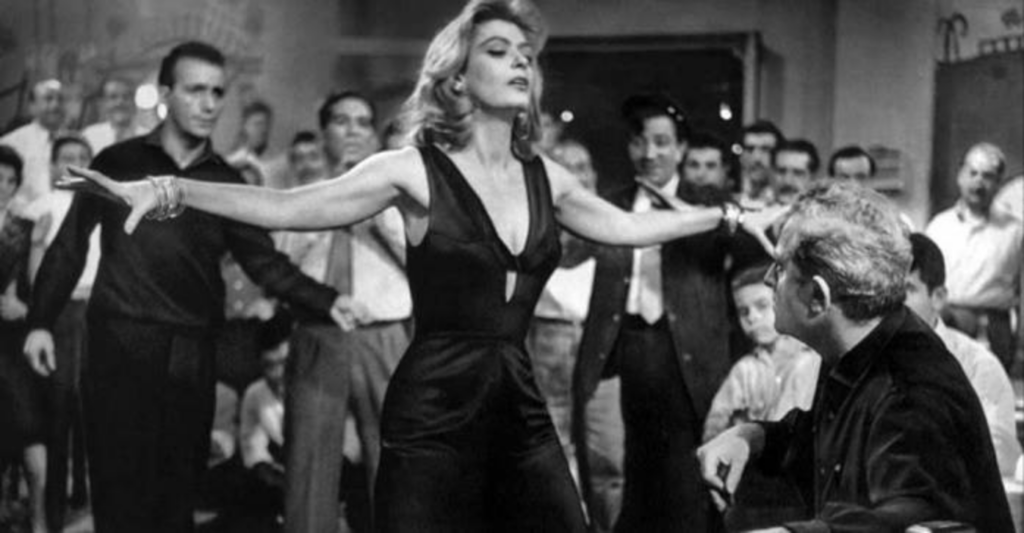
Audience membership aside, the Greek film industry in Australia in the 50s, 60s and 70s was huge. A few sassy, Greek Australian business men, brought the world of Greek cinema into our faraway and homesick, diaspora community eager to keep in touch with the homeland.
Initially staging piecemeal screenings all around Australia where there were Greeks, these businessmen, to name a few, such as Sydney’s Camilla brothers, Melbourne’s Raftopoulos and the prominent film importer Peter Yiannoudes, did us a community service with their work in bringing these movies into our lives in Australian suburban cinemas, many of which they later bought outright.
Peter Yiannoudes claims that he’s now in the process of facilitating a museum of Greek film in Australia, just behind the Westgarth Cinema in Melbourne, one of the many he eventually came to own.
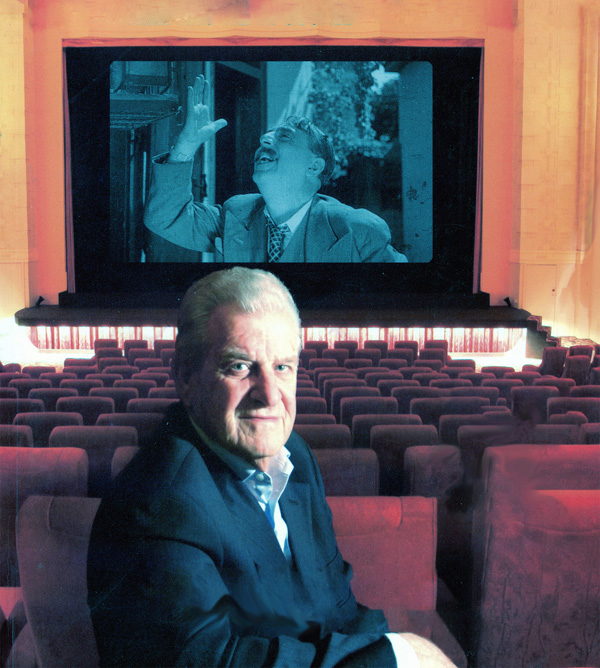
Furthermore, at Australia’s annual Greek Film Festivals, and other Greek Australian movie showcasing events such as The Setting Sun Film Festival last year, old Greek movies have featured – and will hopefully continue to do so. And who knows, perhaps screening of old Greek films at cinemas could be a regular occurrence again.
Speaking recently to my godmother about the old days of Greek cinema in Australia, she recalled what one of us kids had said during a Greek film: “Look they have cars in Greece and restaurants too!” She adds, “I got so angry thinking about the sort of propaganda you kids got back then about Greece at your English schools!”
I assured her that we didn’t get anything of the sort; that Greece wasn’t of much interest to the Australian, primary school education system in which we were brought up. She was silent; a testament perhaps to the generation gap of Greeks in Australia. It might not have mattered to our schools, but Greece mattered and matters to us. Greek films after all, larger than life that they were, did play a major part in keeping us connected to our Greek identity; something solid and innate and large: Often larger than our Australian assimilation.
